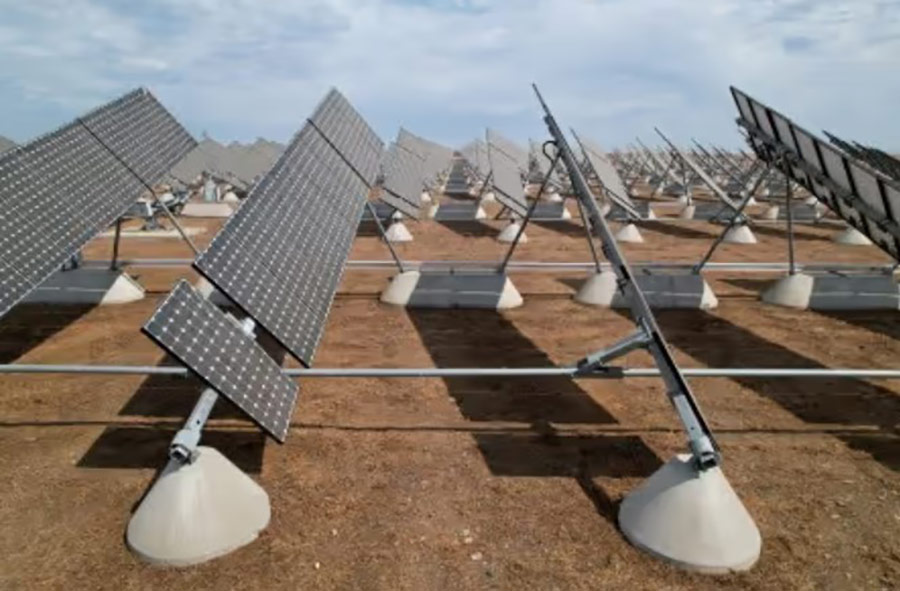Canceled offshore wind projects, imperiled solar factories, fading demand for electric vehicles.
A year after passage of the largest climate change legislation in US history, meant to touch off a boom in American clean energy development, economic realities are fraying President Joe Biden’s agenda.
Soaring financing and materials costs, unreliable supply chains, delayed rulemaking in Washington and sluggish permitting have wrought havoc ranging from offshore wind developer Orsted’s COproject cancellations in the US Northeast, to Tesla, Ford and GM’s scaled back EV manufacturing plans.
The darkening outlook for clean energy industries is tough news for Biden, whose pledge to deliver a net-zero economy by 2050 faces headwinds that the landmark Inflation Reduction Act’s billions in tax credits alone can’t resolve.
After walking into last year’s United Nations climate summit in Egypt touting the IRA as evidence of unprecedented progress in the fight against climate change, Biden is expected to skip this year’s event in Dubai amid dire warnings that the world is moving too slowly to avert the worst of global warming.
Clean energy experts interviewed by Reuters say the mounting setbacks will make the United States’ ambitious targets to decarbonize by mid-century even harder to reach.
“While we see healthy numbers being deployed each and every quarter and we’re continuing to be on a growth path, it’s certainly not at the level that is required to hit some of those targets,” said John Hensley, vice president for the clean energy trade group American Clean Power Association (ACP).
The dynamics of soaring costs and broken supply chains are also slamming projects in other regions. No major nation is on track to meet the emissions reduction goals outlined in the United Nations’ Paris accord, which aims to limit global warming to 1.5 degrees Celsius, according to Wood Mackenzie.
A White House official said that while there have been macroeconomic setbacks and bottlenecks at the local level to renewable energy deployment, there are plenty of examples of progress, including an expanding EV market and Dominion Energy Inc making headway on the nation’s largest offshore wind farm off the coast of Virginia.
“In the face of headwinds that are macro in nature, headwinds that affect decision making across the economy, this has been a resilient trajectory,” White House National Climate Advisor Ali Zaidi said in an interview. He said the United States will achieve it’s climate goals.
More than 56 gigawatts of clean power projects, enough to power nearly 10 million homes, have been delayed since late 2021, according to an ACP analysis. Solar energy facilities account for two thirds of those delays due in part to US import restrictions. Washington has been trying to combat the use of forced labor and tariff-dodging in a panel supply chain that is dominated by Chinese goods. – Reuters





